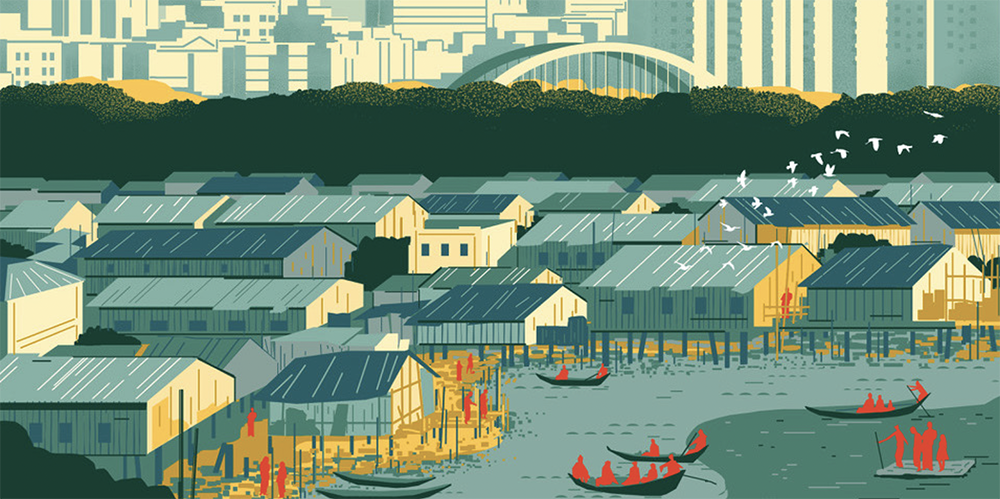Report / Jun 5, 2025
Fair Cities, Shared Prosperity
By Shilpi Roy, PhD, Mohammad Azaz, Efadul Huq, PhD , Eric Lindland

Summary
Khulna, Bangladesh’s third-largest city, is undergoing rapid urbanization shaped by expanding transportation networks, new economic zones, urban-to-rural migration, and low land prices. Nearly half of the city’s built-up area emerged between 2010 and 2020 alone.1 Situated on the coast, Khulna is also highly vulnerable to climate change impacts such as salinity intrusion, flooding, and extreme weather, which have intensified social challenges and driven migration from surrounding areas into the city. Despite this growth, Khulna’s urbanization has been uneven. Many neighborhoods still lack access to basic urban services,2 highlighting a need for a fair urban transition—one that ensures equitable development in the face of climate vulnerability, social inequality, and unplanned growth.
This report supports such efforts by examining how leading development organizations in Khulna frame and communicate pathways toward a fair urban transition. It draws on a field frame analysis of their public communications to understand the narratives shaping the urban development discourse. Field frame analyses are used to examine the communications patterns and narratives that organizations in a given sector use to frame issues relevant to their field and to communicate with their audiences. This report identifies dominant and missing frames in the communications of urban development, advocacy, and environmental organizations, focusing on materials from both Khulna and Dhaka, Bangladesh’s capital. Although the term “fair urban transition” is not explicitly used by these organizations, recurring themes—such as inclusion, empowerment, participation, and equity—align with the concept. These shared themes point to an implicit commitment to fairness in the urban development and urban transition sector.
Illustrations by Nasheen Jahan, justURBAN